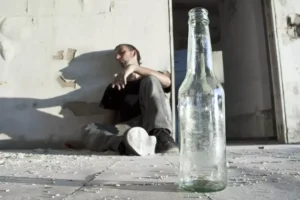A Step-by-Step Guide for Starting Over After Rehab FHE Health

Integrating the power of nature and evidence-based care to treat addiction and co-occurring disorders with detox, residential, and outpatient care. Relapses occur more often than you might think,6 and they’re a common part of the addiction cycle. They typically have a trigger related to your environment and/or emotional state. As your use increases, you’ll grow more tolerant to the substance1 and its pleasurable effects.
Focus on relationships.
Instead of suppressing these feelings, understand them and seek support from your counselor or network. Processing these emotions helps you nurture your sobriety and build a positive future. Just as it’s important to work on relationships with others when navigating life after rehab, it’s necessary for the individual to work on their relationship with themself.
- It can be broken at any point, no matter how many times you’ve spun through it or how long you’ve been spinning.
- You could set an afternoon free to batch cook some meals for when you don’t feel like cooking.
- You may only remember things back when you were sober and a functioning family member, but those roles and expectations in those relationships have also changed.
- It just takes time and patience, both of which can feel like obstacles.
- If you have been struggling with addiction, inpatient rehab programs offer round-the-clock care and support.
- The problem comes up when the brain’s reward system is damaged, and the person finds the eating of high calorie foods to be comforting and difficult to control.
Step 8: Start Dieting

Building a social network after treatment is crucial for maintaining resilience and preventing relapse. If you’re struggling with shame around your relapse, don’t lose hope. Understanding that relapses are often a part of the recovery process releases the shame around making mistakes.
Make a plan to overcome challenges and setbacks
People, places, activities, etc., that may have been part of your past life when you were using can trigger your desire to abuse substances. So it’s best to avoid them altogether and instead seek new friendships with people who support your sobriety and understand your journey. These support groups provide a sense of community and understanding as you connect with others who have gone through similar experiences. They can be incredibly helpful in finding purpose and meaning in life after addiction. And the same applies to surrounding yourself with people who love and wish the best for you. Overcoming drug addiction can help you develop new coping skills, build resilience, and rediscover your passions and purpose in life.
Start Recovery Today

However, if you stay committed to your sobriety, prioritize self-care, and utilize your support network, long-term recovery is possible. Warren is a Licensed Master Social Worker, who specializes in substance abuse and mental health treatment. If you’re recovering, it could help if you moved into a sober living environment. Researchers showed that people living in sober houses over a long period of time (between months) see a considerable improvement in their lifestyle.

No one has ever said that they were happy they went back to drug use after being addicted. Take a look at our recovery programs and decide which one is best for you. Even items like empty pill bottles and Netflix shows serve as triggers. The key is being aware of your triggers and forming a plan to manage them. Keep reading this guide to learn everything you need to know about the recovery process and beyond. rebuilding life after addiction He has chosen to restart a new life and has been in recovery since 2008 and uses running to manage his compulsion to drink.


